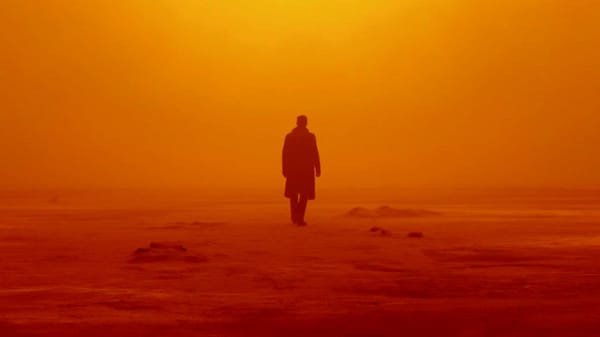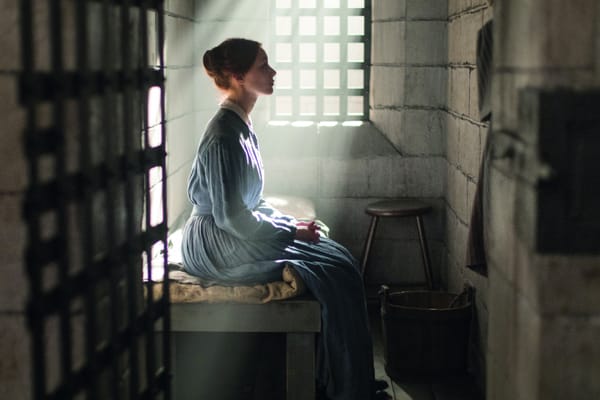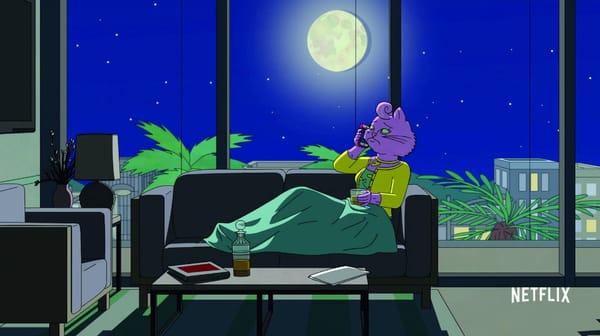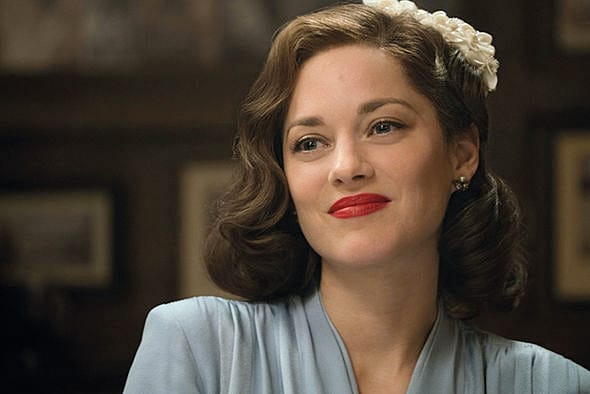Mudbound – A sweeping epic that plays out like an intricate character study
Dee Rees confronts the brutal realities of prejudice and privilege in the divided Jim Crow South.

Look out at the world and you’ll notice all the things that set you apart from everyone else; the characteristics that make you – and everyone else – unique and different. Mudbound however, is a reminder of what we all share – the human struggle to take control of our lives and make something out of our brief existence on this earth. Mudbound lets this struggle play out against a backdrop of rural 1940s Mississippi. Two families, one black and one white, occupy the same piece of farmland, but in vastly different capacities. The white family, led by the gruff, straight-talking Henry McAllan (Jason Clarke) are the beneficiaries of racial privilege in the Jim Crow South and the owners of the farm. The black family, headed by a guarded and long-suffering Hap Jackson (Rob Morgan) are tenant farmers who, for decades, have been bound to this land. The Jacksons have worked this land for generations, first as slaves in the antebellum South and later as sharecroppers, subservient to whichever white landlord held ownership over this modest patch of mud-soaked farmland in the Mississippi Delta.
In Mudbound, while no two scenes are the same, the one constant throughout the film is the presence of mud. That grimy, sticky substance that purges purity with pollution and turns fertile ground into a barren wasteland from which nothing good can grow. Here, land is a symbol of relentless hardship and inescapable struggle. It is a burden, always on the verge of becoming waterlogged and taking its servants down with it. Hap works the land not because he wants to, but because he dreams of one day being able to afford a patch of land that he can call his own. He works the land day and night, breaking it and sowing it; hoeing it and caring for it; tossing the soil till his palms swell; and ploughing the earth till his back breaks. His only reprieve comes in the form of his weekly Sunday church service where he can maintain the hope that one day, he and his family may break free of this timeless struggle. As he preaches to the other sharecroppers on the farm, Hap lifts a sermon into a hymn and delivers the message that “one morning, we gon’ break this boot from ‘round our neck and shake these chains from ‘rounds our feets”. The central question of Mudbound is whether that dream can become a reality.
“Mudbound however, is a reminder of what we all share - the human struggle to take control of our lives”
On the other side of the farm, Henry; his wife Laura (Carey Mulligan); and Henry’s father, Pappy (Jonathan Banks) live in a derelict cabin without any electricity or running water. Laura, tenderly portrayed by Ms. Mulligan, is introduced as an unhappy 31 year-old woman, still living with her parents, who quickly agrees to marry the plain-speaking and uncomplicated Henry on the insistence of her mother. The social climate of the era demands that Laura remain subservient to her husband, and indeed she does so, gladly, until she meets Henry’s younger brother, Jamie (Garrett Hedlund). Jaime is undoubtedly the most charismatic character of the film’s ensemble, and his magnetic personality and relaxed confidence do more to evoke the image of James Bond than that of a grounded 20th century farmhand. It’s not long before Laura falls for Jamie, but their simmering romance is quickly put to an end when Jamie ships off to the military, bound for Europe and the war. Over at the Jacksons’, Hap’s eldest son, Ronsel (Jason Mitchell), mirrors Jamie’s choice and also heads off to the war.
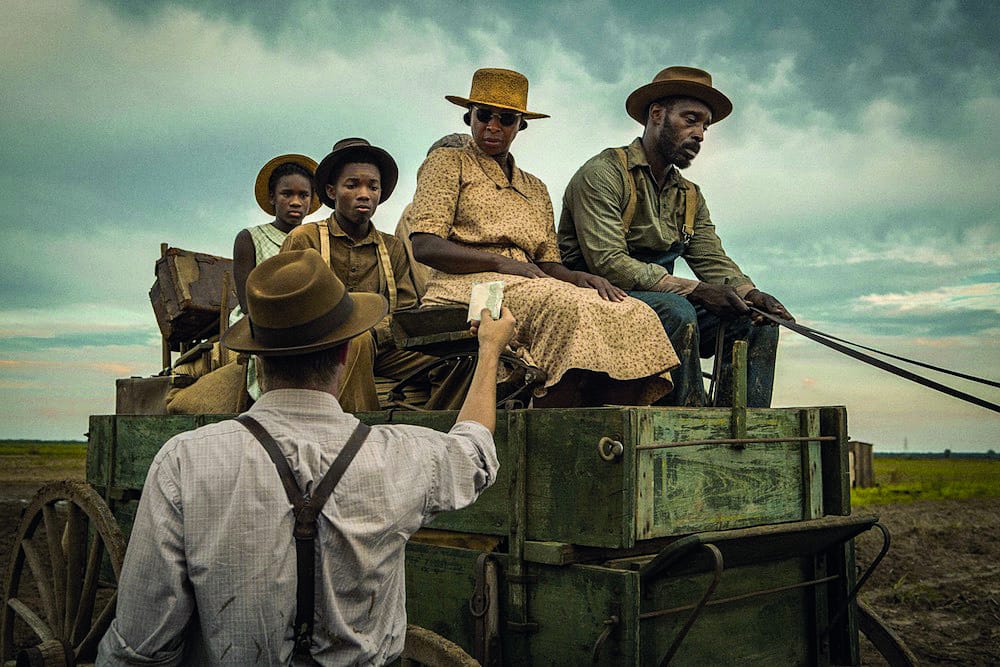
The choice to juxtapose the experiences of black and white Americans, both abroad on the battlefields of Europe and at home in heart of Mississippi, allows Mudbound to explore the segregationist politics of the Jim Crow era in a way few other films have managed. In Europe, Ronsel and his all-black 761st Tank Battalion are viewed as liberators. Whenever they roll into a beleaguered village or a besieged town, the locals greet them with rapturous applause and tears of joy. Racial prejudice and injustice are noticeably absent, and all that remains is the immense expression of gratitude from one community of people to another.
Back in Mississippi however, Ronsel is reminded of his second-class status within American society. Every time he wants to use the washroom or ride the bus, signboards with the word “coloured” remind him of the institutionally-mandated divide between blacks and whites in the country he calls home. The naked reality of such racial prejudice is perfectly captured when Ronsel, having just returned home from the war, casually attempts to leave a shopping store through the front door. He doesn’t get far before Pappy, the McAllan family’s other patriarch, sternly reminds him that “you’re in Mississippi now ni##er, you use the back door.”
“In Mudbound, while no two scenes are the same, the one constant throughout the film is the presence of mud”
Mudbound is adapted from Hillary Jordan’s novel of the same name, and at several moments throughout the film, Dee Rees substitutes dialogue for inner monologues drawn directly from Jordan’s source material. Monologues that puncture the characters’ mud-baked exteriors and give us a glimpse into the truths, drives, loves, and fears that push these men and women to toil day and night on that mud-swamped farmland.
During one of these monologues, Florence Jackson (Mary J. Blige), Ronsel’s mother, intones that her son “can’t sit still, can’t move”. He is trapped in between two worlds: the blood-soaked battlefields where he was praised as a saviour and the mud-soaked farmland where he must stay and work, out of a sense of duty to his family. The only other person who truly understands this inner battle is Jamie, and over the latter half of the film, the two end up finding some sense of comfort in sharing their wartime experiences with one another.
A veteran fighter pilot, Jamie is haunted by a particularly harrowing wartime experience that has left him with a damaging case of PTSD. Whiskey is his medicine and Ronsel is his partner in crime. Barely a scene goes by where Jamie is not halfway through a bottle of alcohol, but even despite his seemingly carefree attitude, he never forgets that his friendship with Ronsel rests on shaky ground. The Ku Klux Klan was well and alive in 1940s Mississippi and were intent on advancing their supremacist ideology by using any means necessary.
“Monologues that puncture the characters’ mud-baked exteriors and give us a glimpse into the truths, drives, loves and fears”
Mudbound is a film that manages to be both intimate and expansive. A story that orbits around the Mississippi Delta, but also drifts into the far reaches of Western Europe. Even though the lives of the two families play out on a single stage of mud-swamped farmland, they overlap in more ways than one. Whereas the older folks are eager to preserve the culture of casual prejudice and inherited privilege, the younger ones are desperate to forge a path of their own and escape a future of earth-bound subservience. Dee Rees traces the lives of these characters as they intersect along the lines of a rapidly changing social climate, and in doing so, she crafts a bold and intimate work that resonates well beyond its historical period.
Mudbound is a piece of poetry that explores the contours of racial privilege and prejudice in a delicate and nuanced manner. It is a film of tender introspection amplified with occasional moments of action. The film is told from the perspective of six characters, and come Oscar season, it will be someone’s job to separate the lead ones from the supporting ones. For now, it is safe to say that with Mudbound, Rees has taken the most mundane of circumstances, and crafted a sweeping epic that plays out like an intricate character study. That alone is enough to warrant your respect.
Mudbound is currently on Netflix and is available at Curzon cinemas.
4.5 Stars
Dir: Dee Rees. Script: Dee Rees, Virgil Williams. Story by: Hillary Jordan Starring: Carey Mulligan, Jason Clarke, Jason Mitchell, Mary J. Blige. 134 minutes

